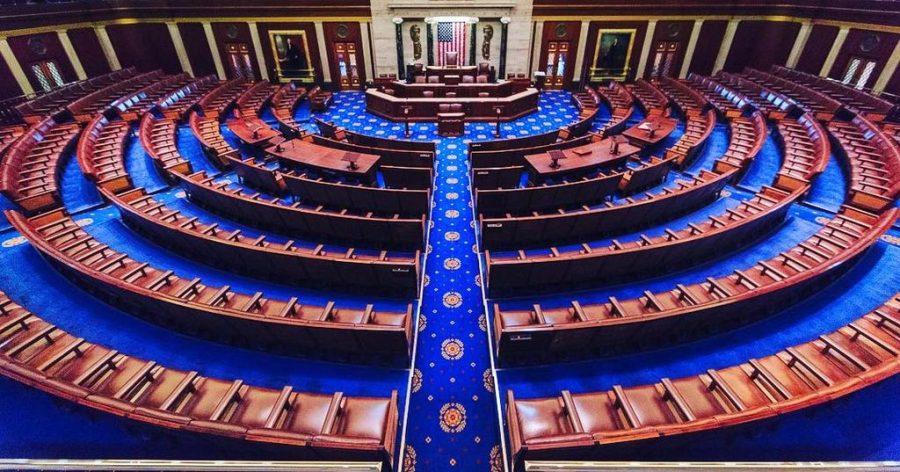House Speakership Remains Contested
United States House of Representatives
The House of Representatives chamber in Washington D.C, 27 February 2017.
January 6, 2023
Although the new year has only just begun, 2023 has already experienced a historic political event that last happened one hundred years ago in 1923 with the 68th congress: the United States Speaker of the House has not been elected after multiple votes.
The speakership is necessary in the house, as without the position the house is unable to do its part in the legislative process. The speakership position is required to be filled before any other process can begin, leaving the country in political gridlock.
The house has voted a total of 11 times as of reporting, but has still not yet elected a speaker. This sets another historical event in the United States political history, as this battle for the speakership is the longest since 1860 with the 36th congress, which took a total of 44 ballots to elect the speaker.
Historically, the Speaker of the House is usually elected quickly, as the major political parties would have voted for their own respective nominees. However, twenty Republican representatives went against this trend and voted against their Republican nominee Kevin McCarthy.
These twenty representatives are considered to be the ‘hard-right’ representatives of the House, including representatives Matt Gaetz (R-Fl) and Lauren Boebert (R- Co) who were among the dozens of Republican representatives that attempted to undermine the 2020 election, with today also marking the anniversary of the Jan. 6th insurrection.
McCarthy requires a majority of the vote to be elected speaker, a total of 218 votes, but as of the 11th vote only has 200. The Democrats have remained a united front in the house, and have used all 212 votes on Democrat nominee Hakeem Jeffries.
Other nominees have amassed a total of 20 combined votes from the dissenting Republican representatives. Byron Donalds, Republican representative from Florida, has 12 votes. Kevin Hern, Republican representative from Colorado, has 7, but he however has voted for McCarthy as speaker. Lastly, Donald Trump was voted for once by Republican representative Matt Gaetz.
One Republican lawmaker has remained ‘present’ and not counted in the vote.
The house will continue to vote for the speaker until a nominee holds the majority vote of 218. Until then, the house remains in political gridlock and infighting.
Update: After the fourth day of voting, and the 15th vote for the speakership, McCarthy was officially elected as Speaker of the House.
McCarthy had gathered a total of 216 votes, which constituted a majority after some Republicans switched their votes from other candidates towards either McCarthy or being counted as present.
For the final voting tally, McCarthy had 216 votes, Jeffries had 212, and 6 members voted to be present in the voting process.



